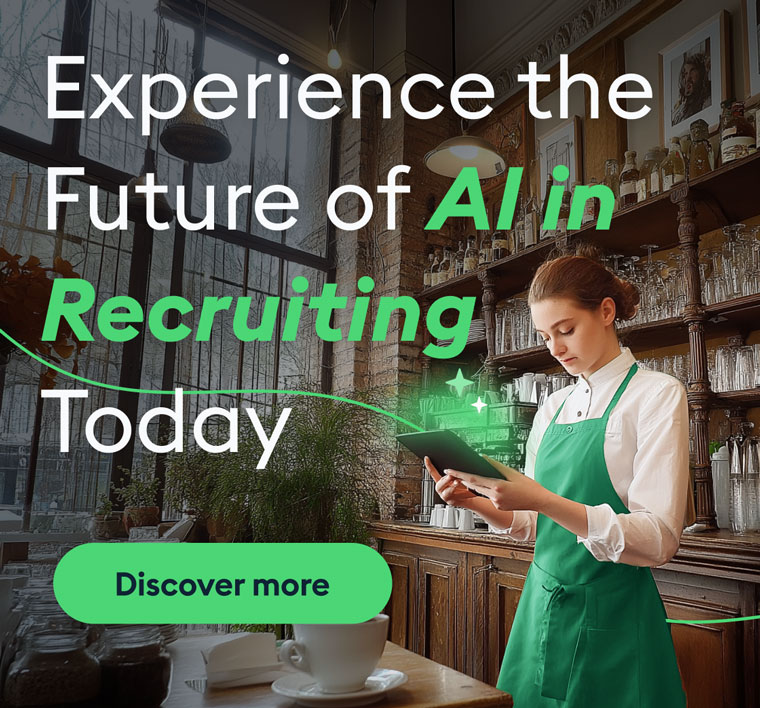Hiring Millennials
Hiring Success GlossaryTable of Contents
- Who exactly are millennials?
- What are the characteristics of a millennial?
- How to hire millennials
- Millennials and ageism
- The importance of hiring millennials
Who exactly are millennials?
Millennials were born between the early 1980’s and mid 1990’s. By most definitions the exact dates are 1981 to 1996. Millennials range from early twenties to mid and late thirties.
What are the characteristics of a millennial?
Millennials are the fastest growing segment of the workforce so it's no wonder employers are scrambling to understand how they act and behave in the workforce. As with every new generation that enters the workforce, millennials are defined by a set of traits and desires that have been shaped by the economy and cultural background they grew up in.
Millennials are digital natives:
- Millennials have grown up with technology. Native to laptops, smartphones, and mobile applications, they know tech inside and out and strive to use it in the workplace. Millennials know the benefits technology can provide both in the workforce and day-to-day life, and look for companies that utilize strong technology & social media strategies. They are unlikely to enthusiastically work for an employer who is behind on modern tech.
Millennials work as a team:
- Millennials parents placed an emphasis on group and team activities during their childhood. Day care, soccer, and homework clubs were all commonplace for them. They know the value of teamwork and the positive affirmation/support that comes from working closely with others. They are loyal and engaged in teams and one to one relationships, but often are seen as lacking commitment to large institutions such as companies.
Millennials are job hoppers:
- It's no secret that millennials hop jobs every 2-3 years in search for a better, more competitive position. Most millennials resumes will show much more job diversity than boomers. They are confident in their ability to find new opportunities when they feel like they have outgrown their current role or workplace. This has led to employers crafting perks and position to tailor to millennials wants and preferences. You can thank millennials for that kombucha on tap.
Millennials want freedom:
- Unlike previous generations millennials are less interested in fast tracking their careers to high level roles. Flexibility and freedom of time is often paramount to this generation. They strive for an aggressive work life balance, flexible schedules, remote work, and work from home perks. This is often seen by older workforce generations as lazy as is a notable point of contention between ‘boomers’ and millennials.
Millennials are data driven and goal oriented:
- Millennials are often characterized by their high confidence, ambition, and goal driven attitude. They expect employers to give them meaningful work and expect to be learning throughout the course of their job.
Millennials are attention seekers:
- Millennials are said to love attention and positive feedback as well as mentorship. Coming from an age of constant digital contact and reinforcement through likes and social shares, they want to be kept in the know and publicly raised for their accomplishments.
How to hire millennials
Now that we’ve established what defines a millennial, you might have read through the aforementioned information and been alarmed. It's important to further break down how to connect with and engage millennials as they are quickly dominating the workforce.
Don't worry about job hopping:
- What's better, an employee that's barely engaged but stays with you for 10 years, or an employee that is fully engaged and leaves after 3 years. It's a simple fact that boomer job loyalty is dead and gone. Today people change jobs frequently, so don't expect to see long stints on resumes anymore. Hiring employees that have a myriad of job expertise under their belts is a great way to bring a diverse professional powerhouse onto your team. And you can bet they’ll teach you a thing or two about social media.
Adopt their language:
- No I don’t mean trying to use slang that will make you sound beyond out of touch. Millennials have grown up with every type of technology readily available. They often abbreviate and use technical jargon. Google that, DM me, PM me, ping them, are all phrases millennial will use to communicate quickly and effectively. Brushing up on abbreviations and current technology abbreviations will help you avoid sounding like a luddite during the hiring process.
Provide a larger purpose:
- It's no longer just about the money or job security. Millennials are in search of fulfillment and a larger feeling of purpose from their careers. They want their time spent in the workplace to have a larger driving impact. If you simply craft a mission statement for your organization but don’t put it into practice, millennials will see right through it. Are you just an applicant tracking software company, or do you strive to minimize frustration in the candidates journey to a job they love?
Millennials and ageism
What is ageism? Ageism is defined as prejudice or discrimination on the grounds of a person's age.
Ageism is nothing new, however with a recent push to hire millennials we are starting to see older generations being pushed out of and discriminated against within the workforce. Furthermore, the negative externality of companies’ drive to hire millennials is leaving older generations, who can also be qualified for the same job openings, out of the hiring process.
Nearly 2 out of 3 workers ages 45 and older have seen or experienced age discrimination. Numbers like these are hard to ignore, especially when in the past decade we have seen massive increases in the cultural acceptance of marginalized groups. Unlike these other groups, it seems as if age is still a category of people we are comfortable discriminating against. So what seems to be the culprit of this new influx of agism? Yet again the answer can be tied to millennials and their shared love of technology.
Millennials are technology natives, and they bring this comfortability with tech into the workplace. This tech comes with undeniable benefits, but can often leave a large skills gap between millennials and older generations. Employers often adopt new software in order to bring their companies into the 21st century and attract millennials to their job openings. Elder workers applying to the position, though arguably more qualified than their counterparts are unfamiliar with the software being used and thus are deemed unqualified.
Employers need to take a step back and evaluate whether their hiring process is ageist. It's worth noting that often a millennial will apply to a position with little to no knowledge of a specific software program or tool. Unlike with older generations, the employer will assume that the millennial will be able to quickly pick up the software and this doesn't think twice about it.
One of the simplest ways to evaluate whether or not a candidate is qualified regardless of age is to focus on the objective facts. Does the candidate have the skills needed to perform this job? Does the candidate have specific knowledge of the tools used here, if not have they demonstrated the ability to adapt and learn in the past? Chances are older generations have a resume full of examples. Asking yourself these simple questions allows you to source and hire both millennials and older generations. Millennials and Boomers both bring unique perspectives that in tandem make a company a powerhouse of innovation backed by decades of proven know-how.
The importance of hiring millennials
It's almost impossible to talk about modern recruiting and talent acquisition without touching on the subject of millennials. Often when millennials in the workforce are brought up, they are cast in a negative light filled with stereotypes about their generation. While generational differences have always existed, there is no doubt that millennials are drastically changing the modern workforce.
Ignoring the preferences and patterns that millennials employ in their search for meaningful jobs will quickly leave you with missing out on top talent. As of right now, 2020, nearly half of the workforce is made up of millennials. It's time to start seeing past the stereotypes that plague millennials and see the positives. It’s key to also take a minute to assess your hiring process and make sure it treats all candidates fairly. Hiring millennials simply because they are younger will lead to poor quality hires. Embrace technology while acknowledging the skills gap that comes with it. Make an effort to focus on ways to engage and embrace the vast changes that are inevitably coming to the workplace without falling into the trap of an ageist hiring process.



